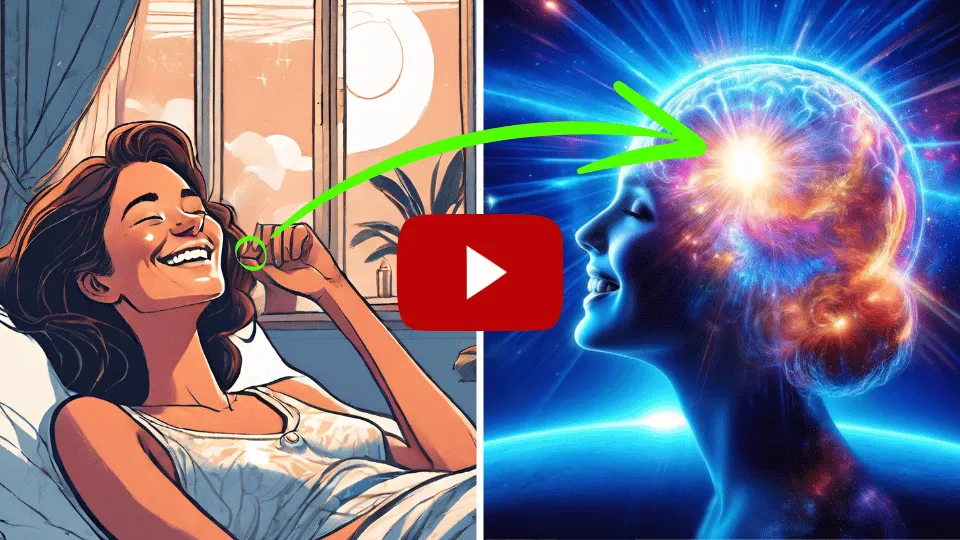Dr. James Rivers, a top NASA scientist, suggests one small tweak to your evening routine that could help enhance brain function—just like it may have done for creative minds like Tesla and Edison.
Thousands are trying this tweak to seek more wealth, better health, and stronger, loving relationships...
Scientists suggest it works by targeting your "zone of genius"—a part of the brain found to be more active in the successful and "lucky" few but often dormant in others.
Watch this eye-opening video now to discover how it could potentially benefit you too...
Scientific References:
- Venkatraman, R.. You're 96 Percent Less Creative Than You Were as a Child. Here's How to Reverse That. Inc.com
- Kerley, J. Creative Inventive Design and Research. NASA
- Robinson, K. “Do Schools Kill Creativity?”. YouTube
- Uable, 28 August 2023. “The end of education.” Medium
- Church, D., Yang, A., Fannin, J., & Blickheuser, K. (2022). The biological dimensions of transcendent states: A randomized controlled trial. Frontiers in Psychology, 13, 928123. Frontiers in Psychology
- Herrmann, C. S., Strüber, D., Helfrich, R. F., & Engel, A. K. (2016). EEG oscillations: From correlation to causality. International Journal of Psychophysiology, 103, 12-21. International Journal of Psychophysiology
- Poe, G. R. (2017). Sleep Is for Forgetting. Journal of Neuroscience, 37(3), 464-473. Journal of Neuroscience
- Crivelli-Decker, J., Hsieh, L.-T., Clarke, A., & Ranganath, C. (Year). Theta oscillations promote temporal sequence learning. Neurobiology of Learning and Memory, Volume Number(Page Numbers). Neurobiology of Learning and Memory
- Zielinski, M. C., Tang, W., & Jadhav, S. P. (2020). The role of replay and theta sequences in mediating hippocampal-prefrontal interactions for memory and cognition. Hippocampus, 30(1), 60-72. Hippocampus
- Henao, D., Navarrete, M., Valderrama, M., & Le Van Quyen, M. (2020). Entrainment and synchronization of brain oscillations to auditory stimulations. Neuroscience Research, 156, 271-278. Neuroscience Research
- Hanslmayr, S., Axmacher, N., & Inman, C. S. (2019). Modulating human memory via entrainment of brain oscillations. Trends in Neurosciences, 42(7), 485-499. Trends in Neurosciences
- Michael, E., Santamaria Covarrubias, L., Leong, V., & Kourtzi, Z. (2023). Learning at your brain's rhythm: individualized entrainment boosts learning for perceptual decisions. Cerebral Cortex, 33(9), 5382-5394. Cerebral Cortex
- Trost, W., Frühholz, S., Schön, D., Labbé, C., Pichon, S., Grandjean, D., & Vuilleumier, P. (2014). Getting the beat: entrainment of brain activity by musical rhythm and pleasantness. NeuroImage, 103, 55-64. NeuroImage
- Trost, W. J., Labbé, C., & Grandjean, D. (2017). Rhythmic entrainment as a musical affect induction mechanism. Neuropsychologia, 96, 96-110. Neuropsychologia
© All rights reserved.
* Disclaimer: This site is not a part of the Facebook website or Facebook Inc. Additionally, This site is NOT endorsed by Facebook in any way. FACEBOOK is a trademark of FACEBOOK, Inc.
